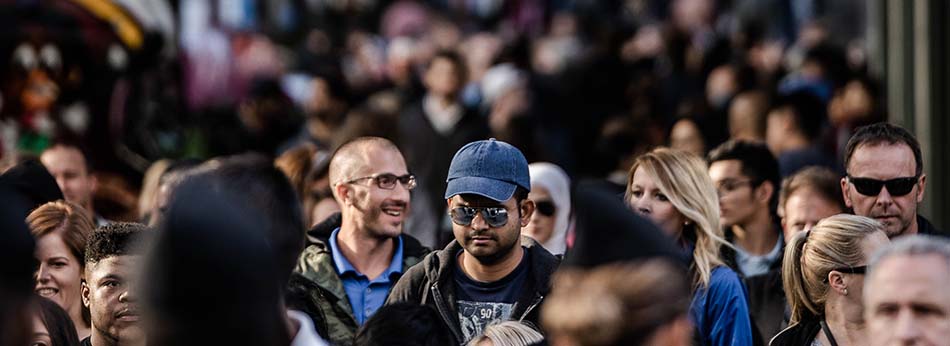RRB&T, PLLC understands that each case is unique and accordingly provides each matter the individualized attention that it requires. Please note that past results are no guarantee of future performance.

Attorneys: Benjamin L. Bedard, and Jason B. Vrbensky
Summary: This was a complex automobile negligence accident, involving both an initial minor impact automobile accident and a subsequent major impact occurring two and a half years later. The initial impact involved a rear impact by an alleged delivery driver. By trial, the only defendant remaining was the employer of the driver of the initial impact, all other parties had settled with the Plaintiff. The Plaintiff alleged to have suffered from acute neck and back pain, chronic occipital neuralgia, and a partial left shoulder tear from the first accident, with a complete tear requiring surgery following the second accident. The Plaintiff’s treatment for the occipital neuralgia included multiple bilateral nerve injections and multiple denervation procedures. The Plaintiff alleged the procedures for treatment of the occipital neuralgia would need to be repeated yearly for the rest of her life. Further, the Plaintiff claimed she had to close her personal business as a drapery designer and fabricator as a result of the injuries sustained in the initial impact. The Plaintiff related all injuries back to the initial impact, and claimed any subsequent injuries from the second accident were inseparable, seeking an award of all damages from the employer of the initial impact.
Our Client: Our firm represented the employer of the delivery driver.
Final Disposition: The case proceeded to trial in August of 2016, wherein the Plaintiff requested a jury verdict of $1,787,331, which included in excess of $239,000 in prior medical bills, and in excess of $300,000 in anticipated future medical bills. We argued that the injuries were not caused in the initial accident, and were pre-existing and/or wholly unrelated to the initial accident. The trial lasted for five days before a jury in Duval County. The jury returned a Defense Verdict in less than an hour awarding no damages to the Plaintiff. The jury verdict stands as final with no appeal.
Attorney: Lyman H. Reynolds
Summary: This negligence action against the City of Palm Beach Gardens arose during a non-custodial transport by a City’s police officer. During the course of the ride, the Plaintiff alleged that the City’s officer was driving at an excessive speed and stopped suddenly at a lowered guard gate. The Plaintiff claimed that he was thrown about the vehicle causing him to strike his head and shoulder against the barrier behind the front seat. Plaintiff claimed neck injury which resulted in a two level disc replacement surgery and claimed to have incurred over $200,000.00 in medical bills.
Our Client: Our firm represented the City of Palm Beach Gardens.
Final Disposition: After a three day trial in September 2016, the jury returned a Defense Verdict, finding no negligence on the part of the City’s officer.
Attorneys: Shelli A. Healy and Stephanie W. Kaufer
Summary: Plaintiff filed a claim for personal injury arising out of a December 2012 motor vehicle accident and sued the driver for negligence and the owner of the vehicle for vicarious liability under the dangerous instrumentality doctrine. Plaintiff’s alleged injuries included a carpal tunnel injury that resulted in surgery. Plaintiff was also permitted to assert a claim for punitive damages against the driver for allegations that he was driving under the influence at the time of the accident.
Our Client: Our firm represented the driver of the vehicle.
Final Disposition: The jury returned a Defense Verdict on October 1, 2015 after a 4 day trial. The driver had filed a proposal for settlement and is seeking entitlement to attorney’s fees and costs.
Attorney: Shelli A. Healy
Summary: The Plaintiff sued an insured Defendant driver for injuries suffered in a motor vehicle accident. The plaintiff claimed the defendant, who was driving a shuttle bus for a rental car company, violated her right of way while defendant was making a left turn into the Palm Beach International Airport. The defendant denied liability and claimed the plaintiff ran a red light.
Our Client: Our firm represented the Defendant driver.
Final Disposition: Medical bills totaled in excess of $100,000 and the plaintiff asked the jury to award over $500,000 in damages. The case was tried on the issues of liability and damages and the jury returned a verdict in forty five minutes finding no liability on behalf of the defendants.

Attorneys: Benjamin L. Bedard and Stephanie W. Kaufer.
Summary: The Plaintiff brought claims against a municipality for violation of his First, Fourth, and Fourteenth Amendment rights, as well as state law claims for false arrest and battery, alleging that the municipality had taken numerous retaliatory actions against him over a seven year period, including arresting him during a city council meeting. After a four week federal jury trial, the jury returned a complete defense verdict in favor of the municipality. Additionally, the court awarded the municipality taxable costs.
Our Client: The municipality.
Final Disposition: The Plaintiff appealed both the final judgment on the merits and the award of taxable costs to the municipality in separate appeals to the Eleventh Circuit Court of Appeals. On appeal, Plaintiff argued that the jury’s verdict was against the manifest weight of the evidence and that the district court had erred in instructing the jury and sought a new trial. In a separate appeal, Plaintiff also sought reversal of the taxable costs judgment in favor of the municipality. Mr. Bedard and Ms. Kaufer drafted briefs on behalf of the municipality in both the final judgment and cost judgment appeals. After briefing was completed in both cases, and without oral argument, the Eleventh Circuit issued two opinions affirming the final judgment on the merits and the award of taxable costs to the municipality.

Attorneys: Benjamin L. Bedard and Danna P. Clement
Summary: This case arose out of an incident occurring at the Boynton Beach Mall. On the date of the accident, a man visited the mall with his girlfriend and her two children. The group browsed several stores in the mall and headed to the food court to get something to eat. While at the food court, the man recognized several male individuals with whom he had an adversarial relationship. He followed the group of males and confronted them inside an athletic store in the mall. After a verbal confrontation inside the store, the man was persuaded to leave the store by his girlfriend. The man left the store, but did not stop his verbal disagreement with the other male individuals. Soon thereafter, a physical confrontation ensued which resulted in the man being shot and killed in the common areas of the mall. The decedent’s estate filed a wrongful death action against the mall, the mall security company and the athletic store. The estate alleged negligence on the part of the athletic store for failing to promptly notify the police and the mall security of the verbal altercation, as well as failing to follow its own mode of operation.
Our Client: Our firm represented the athletic store.
Final Disposition: This case proceeded to trial wherein we argued that our client did not owe the decedent a duty because he entered our client’s store for an improper purpose. The jury found that the decedent was not on our client’s premises for a legitimate purpose. Thus, the jury found that the decedent lost his status as a business invitee, and therefore our client did not owe the decedent a duty based on the decedent’s actions on the date of the incident and returned a defense verdict.

Attorneys: Lyman H. Reynolds and Jeffrey W. Hurcomb
Summary: A complex action under 42 U.S.C. 1983 for alleged violations of constitutional rights of three Plaintiffs was brought against a former Police Officer for the City of Naples in the Middle District Court of Florida in Fort Meyers. The Defendant Police Officer was responding to an early morning noise complaint in 2012 at an apartment complex where the Plaintiffs were located. During his second visit to the apartment the Plaintiffs were all arrested by the Defendant Officer. The Plaintiffs made allegations of invasion of privacy, false arrest, excessive force, malicious prosecution, and punitive damages against the Defendant.
Our Client: Our firm represented the Defendant, a former Police Officer for the City of Naples.
Final Disposition: The eight day Federal Trial took place in February 2017, and was comprised of testimony from numerous fact and expert witnesses, the Plaintiffs, the Defendant’s assisting officers at the time of the incident, and the Defendant himself. The jury returned a complete Defense Verdict in favor of the Defendant for all counts brought by each of the three Plaintiffs.
Attorneys: George P. Reynolds, Jr. and Lyman H. Reynolds
Summary: Plaintiff alleged she was falsely accused of shoplifting by an Electronics Store and was subsequently falsely arrested and battered by a local City’s police officers. The Plaintiff brought suit alleging false arrest and battery against the City and negligent infliction of emotional distress and negligent training against the Electronics store.
Our Client: The City
Final Disposition: The Electronics store settled prior to trial. The case proceeded to trial and the jury found completely for our client noting that there was probable cause for the arrest and that the Plaintiff’s arrest was accomplished without excessive use of force.

Attorneys: Gerard A. Tuzzio and Laura E. Bedard
Summary: Plaintiff was involved in rear end collision. As result of the collision, Plaintiff brought her vehicle to the dealership for repairs. Part of the repair included a replacement of the exhaust system. This work was performed by a local vendor commonly used by the dealership. After receiving the repaired vehicle, Plaintiff alleged that she was exposed to carbon monoxide poisoning as a result of an alleged pinhole leak discovered in the exhaust system. As such, Plaintiff filed suit against the driver of the vehicle who caused the underlying accident, the dealership where the vehicle was brought to be repaired, and the local vendor that performed the repairs, seeking damages in excess of fifty (50) million dollars.
Our Client: Our firm represented the dealership.
Final Disposition: After Plaintiff refused to accept anything less than ten (10) million dollars from our client, the case proceeded to trial. After deliberating, the jury returned a defense verdict, finding no liability on behalf of our client and awarding the Plaintiff zero.
Note: The case was appealed to the 4th DCA and the verdict was per curiam affirmed. Currently, the firm is seeking collection of its cost judgment granted by Court.
Summary: The Plaintiff sued an insured Defendant driver for injuries suffered in a motor vehicle accident. The Plaintiff demanded damages well in excess of policy limits. Plaintiff had extensive injuries and allegations of bad faith.
Our Client: The insured driver.
Final Disposition: With the Plaintiff unwilling to settle for policy limits the case went to trial. RRB&T argued that the Plaintiff’s injuries were preexisting and were not caused by the accident. The jury returned a verdict of $8,500.00, well below policy limits.
Summary: The Plaintiff was walking across a local road in the early morning hours when he was stuck by Defendant driver. The Plaintiff broke numerous bones and was hospitalized for an extended period of time. Plaintiff sought damages for past and future medical fees, pain and suffering, and compensation for reduced memory and brain trauma.
Our Client: Defendant Driver.
Final Disposition: With the Plaintiff unwilling to settle for any reasonable amount the case went to trial. Our firm was able to successfully argue that the Plaintiff was primarily responsible for the accident and the jury returned a verdict finding the Plaintiff eighty percent at fault for this accident.
Summary: The Plaintiff sued a local Town for damages allegedly stemming from an accident wherein he was struck while riding his bicycle by a truck being driven by the Town’s employee in the course and scope of his employment with the Town. The Plaintiff alleged he was walking his bicycle, with the signal, through a crosswalk when he was struck by the truck as it made a right turn.
Our Client: The Town.
Final Disposition: With the Plaintiff unwilling to settle for any reasonable amount the case went to trial. The jury found the Plaintiff fifty percent at fault for this accident and issued an award less than five hundred dollars.

Attorney: Lyman H. Reynolds
Summary: Plaintiff claimed that shortly upon moving into his new home the Plaintiff’s health began to deteriorate quickly, ultimately necessitating the Plaintiff receive a lung transplant. Plaintiff alleged his injuries were caused by the allegedly faulty or substandard air filtration system in his new home. Plaintiff sought damages well into the millions of dollars for medical expenses, pain and suffering from the lung transplant, loss of income from an invention, and damages to a warehouse in Michigan from the home builder and the air conditioning company.
Our Client: Our firm represented the home builder.
Final Disposition: We were able to eliminate several damage claims via summary judgment, using testimony obtained from Plaintiff’s own expert witnesses, including Plaintiff’s claims for a lung transplant. The Plaintiff took his remaining case to trial before a jury. The jury returned a full Defense Verdict for our client.

Attorney: George P. Roberts, Jr.
Summary: In this action a city Resident brought an equal protection challenge against the City for restricting the Resident to only selling his wares at the City’s green market to one (1) weekend a month, while other vendors were permitted to sell their wares each weekend of the month.
Our Client: Our firm represented the City.
Final Disposition: The case proceeded to trial. After the Resident rested his case at trial, the trial court granted a Rule 50(a), Fed. R. Civ. P., judgment as a matter of law in favor of the City. The Court found that the City had a rational basis for its categorization and separate treatment of the vendors, and that the Resident presented no evidence of unequal treatment between himself and similarly situated vendors.
Note: On appeal, in an unpublished opinion, the 11th Circuit Court of Appeals affirmed the Southern District’s judgment as a matter of law.
